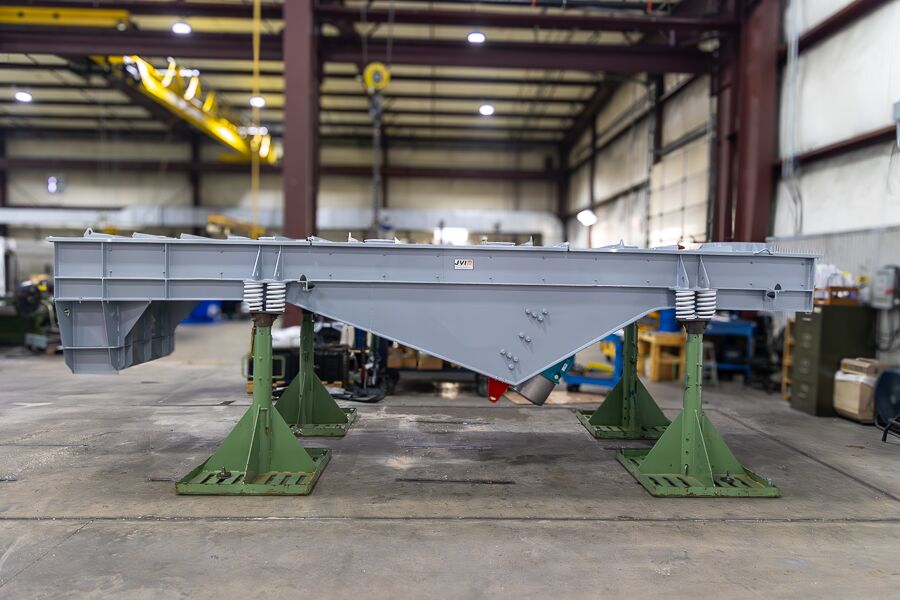
A steel mill faced the challenge of replacing an aging feeder, also known as a vibrating channel, which was nearing the end of its operating life. The customer reached out to JVI for a solution, having previously relied on JVI to retrofit a new pan feeder in a similar application at another mill. The new equipment needed to feed charging alloys and flux from a hopper to a chute going to a ladle furnace at a capacity of 166-303 TPH, fit within the existing work envelope, and control dusting.
Problem:
The existing pan feeder was no longer efficient and required replacement to maintain the steel mill's operational standards. The main requirements for the new feeder included:
- Regulating the feed rate of charging alloys and flux from the hopper to the chute, while meeting the desired capacity range of 166-330 TPH.
- Retrofit into the existing work envelope which features an extended distance from the hopper to downstream equipment.
- Control dusting of the material
Solution: JVI Custom Electromechanical Pan Feeder
JVI designed a custom electromechanical pan feeder to fit and operate within the available work envelope of the existing process. The solution involved several key components:
Single Mass Design
The single mass design was chosen for its high reliability and low maintenance, utilizing fewer operating components, and eliminating the need for tuning.
Electromechanical "Unbalanced" Motors
Electromechanical motors were selected for their proven performance in high volume continuous discharge applications. By using electromechanical motors, the feeder will be able to handle the required 166 – 330 TPH of material capacity.
Replaceable Wear Liners
To address the high volume and abrasive characteristics of the charging alloys and flux, replaceable, bolt-on wear liners were added to all material contact areas. The liners will protect the pan feeder and increase its overall operating life. The bolt on design also enables easy replacement helping to further extend the feeders operating life.
Bolt-On Cover
To address the issue of dusting, JVI incorporated a bolt-on cover for the pan feeder. The bolt-on cover will effectively contain the dust within the feeder, preventing it from spreading to other areas of the steel mill. The cover also included inspection ports for easier maintenance.
Vertical Discharge
A bolted vertical discharge with a 1.5 ft x 2.6 ft outlet was added to ensure optimal feeding into the chute.
Isolation Springs
(8) Isolation coil springs were used to support the feeder on the customer-provided support stand, preventing vibration transfer to the support structure.
The Results
The implementation of JVI's vibratory pan feeder improved the steel mill's efficiency back to the desired level. The feeder met all the specified requirements, including the capacity, fit within the existing work envelope, and effective dust control. The customer reported enhanced reliability and reduced maintenance needs, contributing to overall operational improvements.